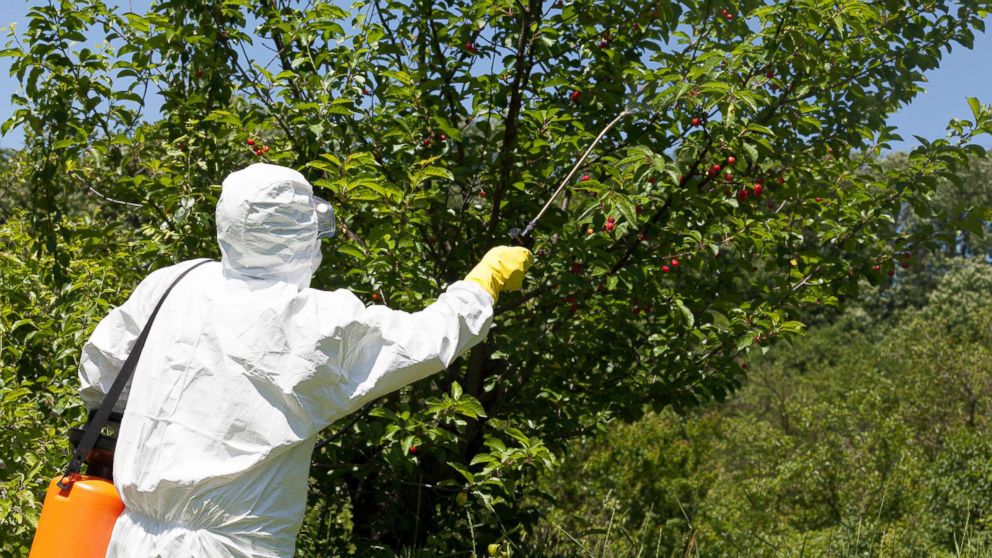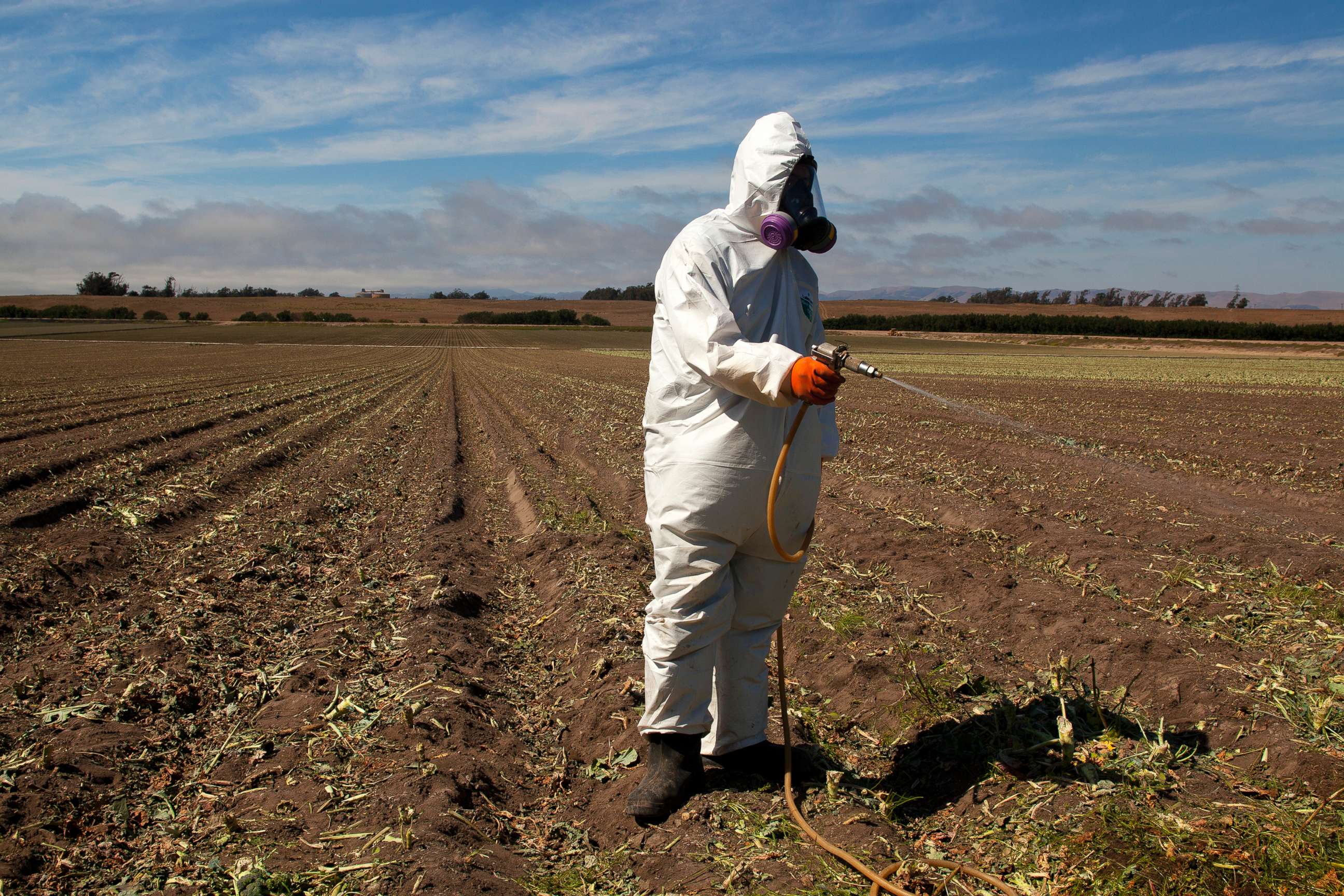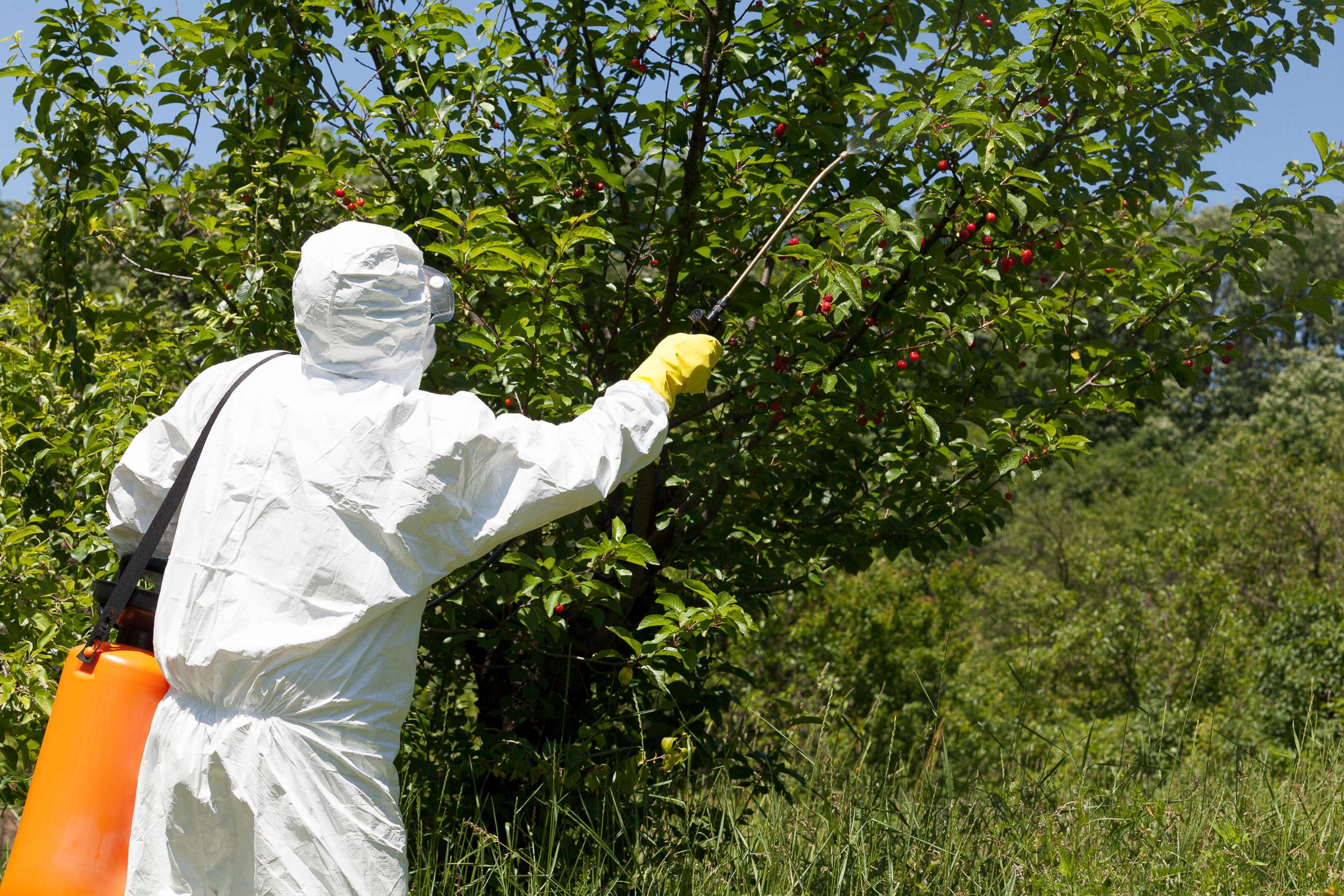Federal court says EPA must revoke pesticide connected to health problems in children
The pesticide, chlorpyrifos, has prompted years of challenges from advocates.

A federal court on Thursday ordered the EPA to stop allowing a pesticide to be used that advocates and the agency's own review have said causes health issues in children.
The pesticide chlorpyrifos is used on crops including corn, fruits, and nuts. Research and EPA evaluations have said it is harmful to children and farmworkers who are exposed to it, but the government opted to allow some levels of the chemicals and previously denied petitions to ban it completely.
In a 2-1 decision a federal appeals court in California said the EPA had to reverse that denial and revoke all accepted levels and registrations for the pesticide in 60 days, essentially prohibiting it from being used.
The ruling is a big win for groups that represent farm workers who have said they and their families are being made sick by working with the pesticide.

"We applaud the court ruling,” said Hector Sanchez Barba, executive director of the Labor Council for Latin American Advancement, one of the groups that brought the case.
“Chlorpyrifos affects everyone who comes in contact with this toxic chemical,” he continued. “Allowing the use of this toxic chemical is not only irresponsible, it is a crime."
"Our agricultural fields should be a source of life, not sickness, and we will continue pushing for a safe environment for our farm workers all over the nation."
The court said the EPA did not properly justify its decision to allow some levels of chlorpyrifos in 2017, even after the EPA's own risk assessment showed that it caused health problems in children.

The EPA said in 2016 that the levels of the pesticide on food and in drinking water are not safe and that it is also risky for workers who apply the pesticide, but denied a petition asking the agency to revoke its recommended safe levels. Some studies have found increased rates of autism and developmental issues among children in areas where pregnant women were exposed to chlorpyrifos.
An EPA spokesman said the agency has questions about one of the major studies cited as a major source in the EPA's previous recommendation to ban the pesticide in 2015. He said EPA's scientific advisors and scientists at other agencies expressed concern about the study because they did not have access to the raw data the Columbia Center for Children's Environmental Health used in its research.
"EPA is reviewing the decision," EPA spokesman Michael Abboud said in a statement. "The Columbia Center’s data underlying the Court’s assumptions remains inaccessible and has hindered the Agency’s ongoing process to fully evaluate the pesticide using the best available, transparent science."
Chlorpyrifos kills pests by blocking signals in the nervous system and causing it to break down, but it can break down and causes problems with humans' nerve systems if they are exposed to it, according to the National Pesticide Information Center.
The judges also condemned the EPA for delaying a decision on chlorpyrifos, District Judge Jed Rakoff wrote that the EPA has denied the court's authority to review the petition without defending its decisions, saying "the time has come to put a stop to this patent evasion."
Chlorpyrifos is only used for agricultural crops and is restricted in how it can be used in people's homes. The EPA has previously set buffer zones to prevent the sprayed pesticide from drifting toward schools or other sensitive areas and said that it can't be used on some crops, such as tomatoes, and required that labels for the chemical warn workers of the effects if it is not used properly.
Environmental advocacy groups and groups that represent farm workers have appealed the EPA's decisions and later sued the agency for delaying its response to those petitions.
Marisa Ordonia, an attorney who worked on the case with the group Earthjustice, said EPA did not defend the merits of their decision in court.
"This court ruling is a major victory for children and farmworkers, who for too long have been exposed to a sickening brain-damaging chemical,” said Earthjustice attorney Marisa Ordonia, who worked on the case. “But that will soon come to an end. Soon our fields, our fruits and vegetables will be chlorpyrifos free."
Editor's Note: This story has updated to reflect the removal of a photo that incorrectly included the herbicide Roundup, a product not connected to the pesticides in this story.




